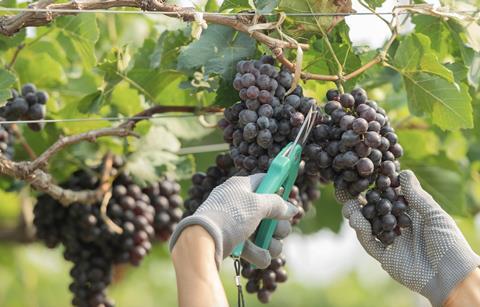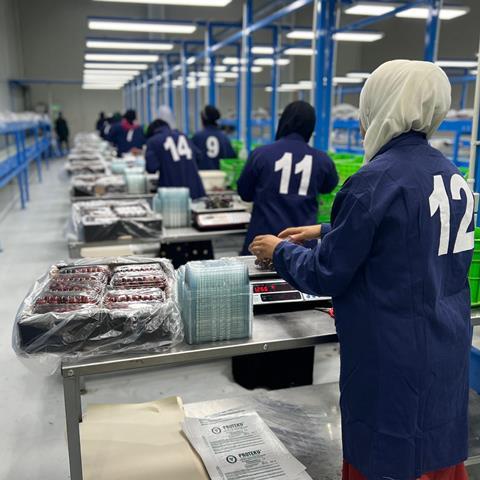As Israel broadens its war in the region, Lebanon now faces wide-scale bombings and continuing threats of a major invasion, as fresh produce companies strive to continue trading
Producer Natagri was part of a delegation of Lebanese companies that was forced to cancel its participation at the Fruit Attraction exhibition in Madrid following Israeli airstrikes across a large part of the country.
“Some of our farms are located in areas that are being targeted by Israeli bombs, especially in the northern part of the Central Bekaa,” said CEO Fadi Sarkis. “This prevents our workers from reaching the area in order to properly harvest the production.”
The company, founded in 2014, specialises in Crimson Seedless grapes, which make up 90 per cent of its grape offering, along with other white and red seedless varieties.

“We produce around 1,500 tonnes of table grapes a year, as well as 200 tonnes of other types of fruits,” said Sarkis. “We believe in the prospects for Lebanese fruit, especially grapes and stonefruit, so we are now investing in a project to produce and export sweet cherry varieties. We are also working on a large-scale project to commercialise under the Natagri brand for packed fresh fruit from Lebanon, with quality certifications from farm to fork and a focus on post-harvest practices, conditioning, packing and distribution.”
Natural advantage
Lebanon’s diverse terrain, from the shores on the west coast across mountain ranges and the Bekaa Valley to the east, has given rise to the development of a wide range of agricultural products, from citrus and tropical fruits on the coast (including oranges, limes, kiwifruit, bananas and mangoes), to stonefruit and apples and pears on the higher slopes, to cereals and vegetables in the Bekaa Valley, and “vines and olive groves almost everywhere,” according to Sarkis.
“The seasonal shifts within our particular Mediterranean climate, the mosaic of microclimates associated with the topographical diversity and the abundance of sunlight, offer the potential to produce off-season fresh products with high sensory quality in terms of colouration, texture and taste,” he explained. “This can give them a competitive advantage on international markets.”
Natagri’s main target markets include the UK, the Netherlands and Norway, as well as East Asian countries such as Singapore, Malaysia and Hong Kong, African nations like Kenya, South Africa and Senegal, and Gulf states like the UAE and Oman.
Resolve remains strong
Despite the difficulties in retaining its workforce, with many employees having been forced to flee their homes, Natagri says it aims to continue meeting the demand for its produce.

“We continue to strive to harvest as much as possible during pauses, in order to not let all the production go to waste,” said Sarkis. “But we fear necessary resources like electricity, fuel, fertiliser and phytosanitary products could start being rationed, which would severely affect our productivity, especially in the warehouse. That’s not to mention the threat to international transportation hubs, like the port of Beirut and Rafic Hariri International airport, which could prevent our containers from leaving the country.”
With Lebanese fresh produce companies like Natagri already impacted by shipping issues in the Red Sea lowering their export volumes to markets in the Gulf and East Asia, a rise in disruption and uncertainty appears likely. But the resolve of the Lebanese produce industry remains strong.
“We hope that we will continue being able to do our job in order to fulfil our commitments to our customers and partners and contribute further to the economic development of our country,” added Sarkis. “We hope national and international diplomatic efforts will finally prevail and that a peaceful resolution will be reached to put an end to the ongoing violence.”
On 12 October, Israeli airstrikes destroyed the southern city of Nabatieh’s central market, according to the Lebanese Red Cross. The 13,000m2 Nabatieh market, established in 1910, is renowned across the country for its architecture and local shops selling fresh fruits and vegetables and other items. More recently, many had relied on the market for essential items as they fled from other areas.



